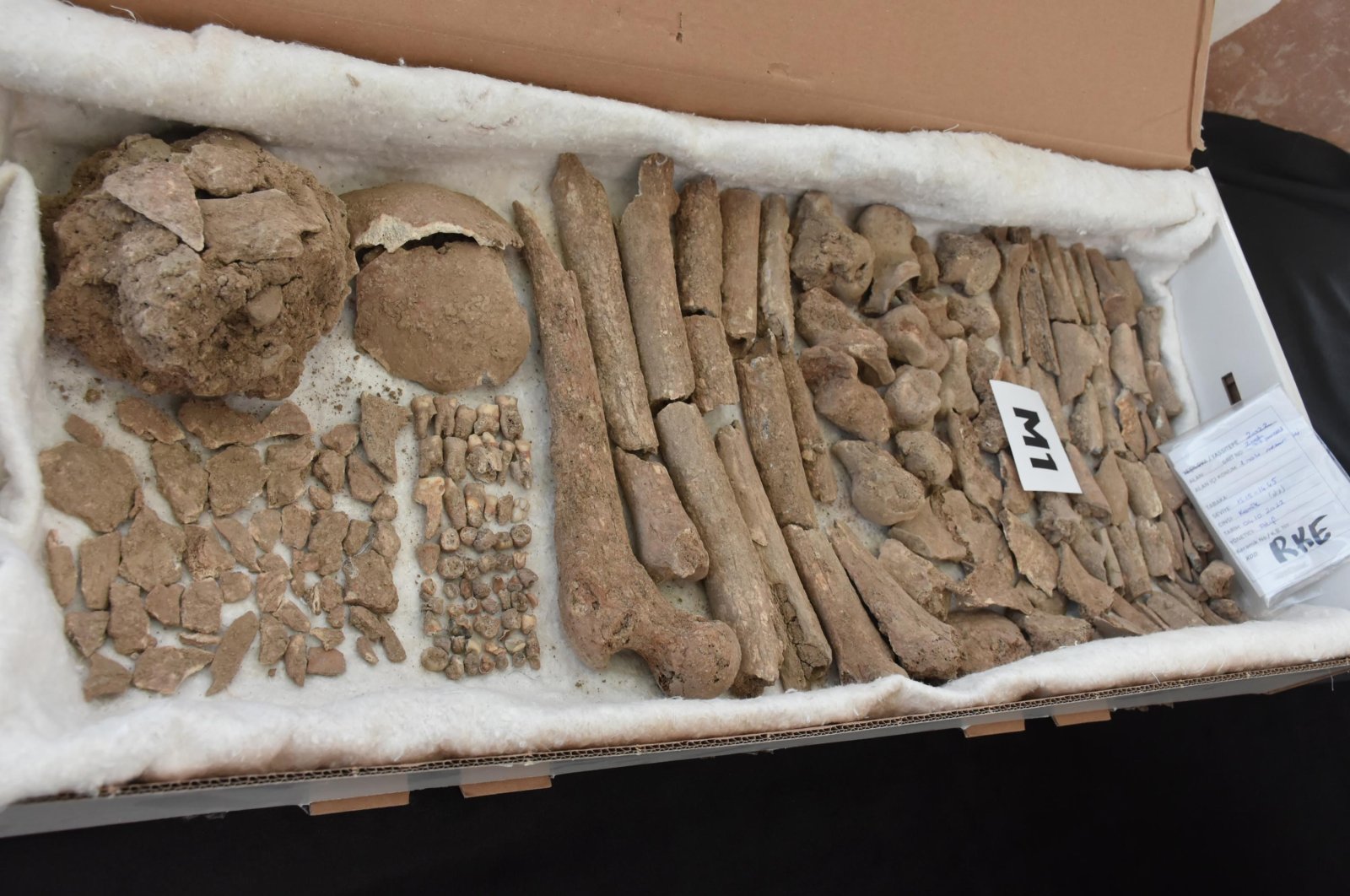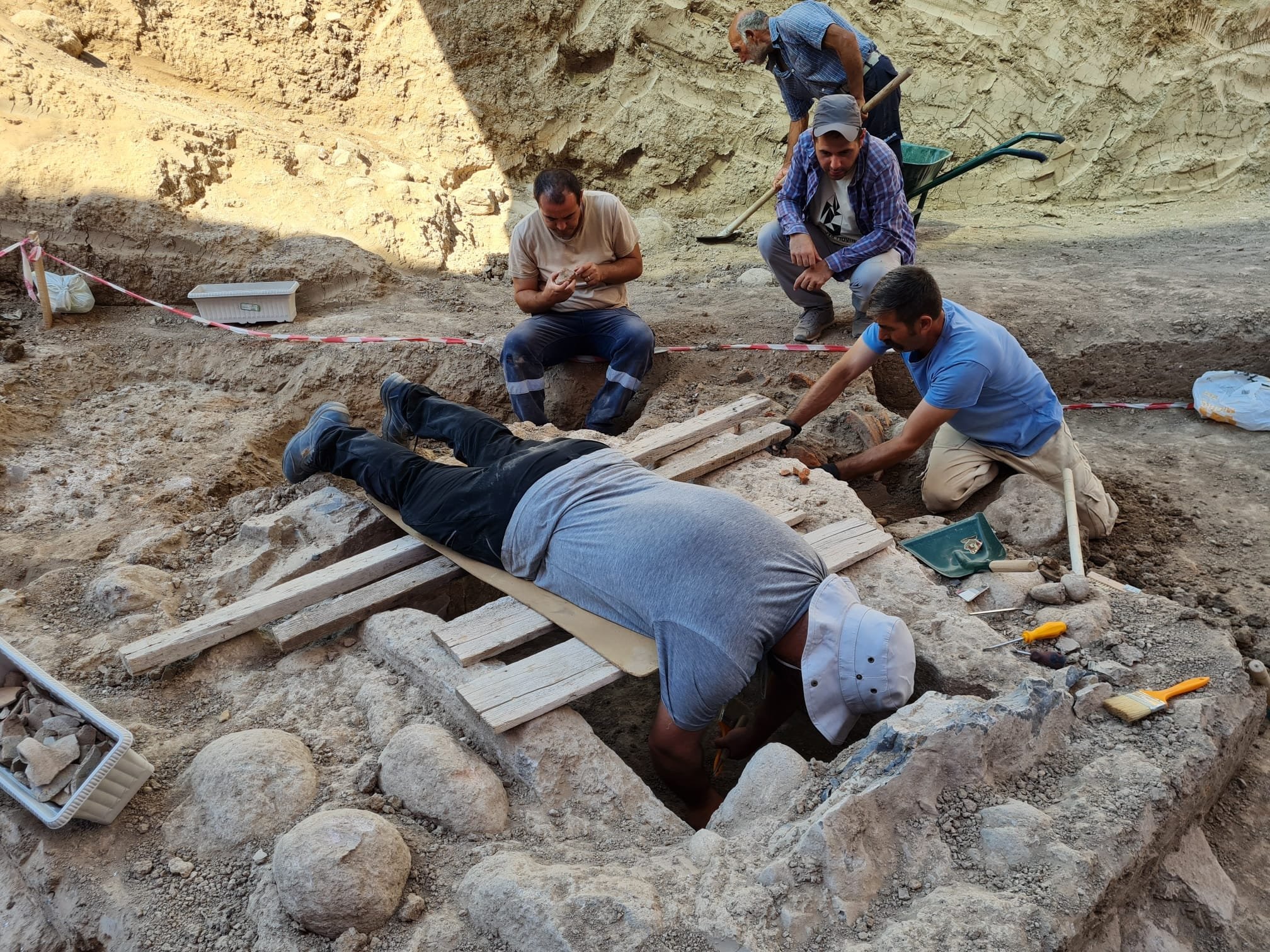
A 3,400-year-old grave, jug and vessels, which are considered to belong to the Mycenaean civilization, were discovered in the Yassıtepe excavations carried out in the Yeşilova tumulus in the Bornova district of Türkiye's Izmir.
With the permission of the Ministry of Culture and Tourism and the support of Izmir Metropolitan and Bornova municipalities, excavations continue under Ege University Faculty of Letters Archeology Department lecturer Zafer Derin. Stating that the excavation works in Yeşilova and Yassıtepe mounds for the year 2022 have been completed, the studies revealed a very important burial area and findings belonging to the Mycenaean civilization.

"According to our first determinations, the burial ground has been used since 5,000 years ago. In particular, we encountered a group of graves dating back to 3,400 years ago. There are sarcophagi and pithos graves. These graves belong to a period when the first commercial life of Izmir started," Derin said.
"The Mycenaeans were a commercial and political group that dominated the Aegean Islands, Greece and the entire Mediterranean basin. We also found traces of this society in western Anatolia during the excavations carried out in Yassıtepe Mound. For burial ceremonies, they used stone coffins called sarcophagi. In the graves, we also encountered double-handled jugs, in which fragrant olive oil was carried and vessels called 'pyxis,' which were used to carry cream. They also left jewelry made of agate stone, which they brought from their original region," he added.
Derin also highlighted that such discoveries can be made in many parts of western Anatolia, yet it was important to unearth this cemetery for the first time in the city center of Izmir.
The site where excavations are carried out has a history of 8,500 years.
